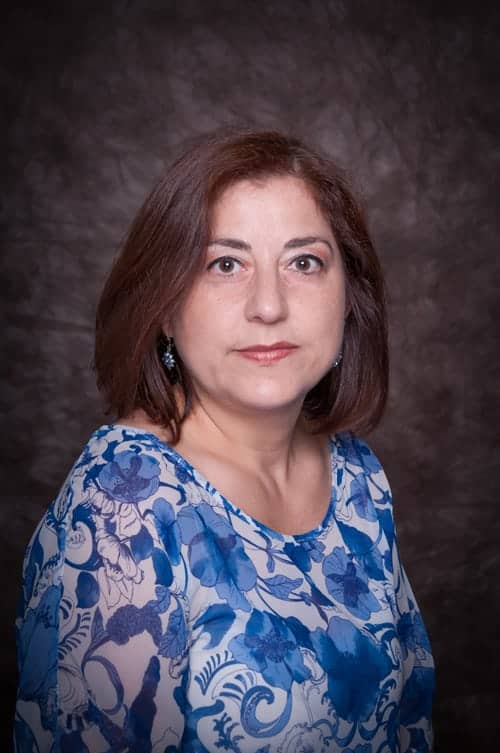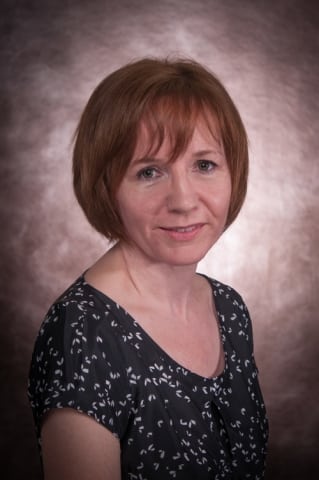TESOL – Teaching English to Speakers of Other Languages (MA, 1.5 Years or 3 Semesters)
| Duration | 1.5 years |
| Qualification Awarded | TESOL – Teaching English to Speakers of Other Languages (MA, 1.5 years or 3 semesters) |
| Level of Qualification | Master Degree (2nd Cycle) |
| Language of Instruction | English |
| Mode of Study | Full-time and Part-time |
| Minimum ECTS Credits | 90 |
Request Information
Profile of the Programme
- To provide students with a strong professional foundation for developing practical teaching skills in relation to TESOL;
- To further students’ understanding of English language teaching.
Specific:
- To develop in the student an understanding of a range of disciplines and areas of professional activity which underpin the field of TESOL and constitute its focus and its concerns;
- To provide students with a solid theoretical foundation and the necessary professional skills in TESOL;
- To equip the students with the linguistic knowledge, cultural understanding, and pedagogical training essential to the various aspects of TESOL;
- To provide theoretical and/or practical support for actual situations within the language classroom,
- To develop students’ skills in critical reading and ability to design a research project,
- To provide the theoretical and/or practical basis required for the study of a doctoral degree.
Career Prospects
This is a postgraduate degree that opens many career opportunities. English is the language of global communication, and demand for TESOL professionals worldwide is greater than ever before. Our graduates can work for universities and other public and private schools, international corporations, governments, and in private practice locally and abroad. They can teach English to people of all ages and all walks of life, administering and designing ESOL courses and curricula, and developing new teaching methods. The MA TESOL is increasingly the degree of preference for employers both domestically and abroad.
Access to Further Studies
The graduate programme will provide the basis for acceptance to a doctoral degree in TESOL or Applied Linguistics.
Admission Criteria
The minimum general requirement for admission to the post-graduate degree programme is a Bachelor Degree from a recognised university.
More specifically, the following entry requirements apply for the MA in TESOL programme:
Academic requirements
- All applicants for entrance in the MA TESOL programme offered by the Department should have at least a lower second class (2:2) Bachelor degree in English Language/ English Linguistics and/or English Literature from a recognised university.
- Teaching experience is not essential but preferred. Tutoring experience is helpful.
- Applicants with a lower grade or whose degree is on a related discipline will be considered on their own merits.
Other requirements
- Two academic reference letters.
- Personal Statement: A letter highlighting the applicant’s individual competences and strengths and providing his/her reflections regarding the expectations and value of the programme as well as to his/her personal advancement and career development.
English Language Entry requirements
If the candidate’s first degree was not taught in English language, then the candidate needs to provide evidence of his/her English Language proficiency as follows:
- A British Council International English Language Testing System (IELTS) score of 7 (or above) with a minimum score in each component of Reading, Writing, Listening and Speaking of 6.5, or
- TOEFL 580 (paper-based test) or 237 (computer-based test) with a score of not less than 4 in TWE or 92 (internet-based test) with not less than 21 Writing, Listening 21, Reading 22 and Speaking 23,
- or IGCSE minimum score ‘B’
- or Cambridge Proficiency English (CPE) minimum grade C
- or Cambridge Advanced English (CAE) minimum grade B.
- or Cambridge Michigan ECPE Proficiency – Pass
- or score placement at the ENGL-101 level of the University of Nicosia
English language test results should not be older than 2 years.
Course assessment usually comprises of a comprehensive final exam and continuous assessment. Continuous assessment can include amongst others, mid terms, projects, and class participation.
Letter grades are calculated based on the weight of the final exam and the continuous assessment and the actual numerical marks obtained in these two assessment components. Based on the course grades the student’s semester grade point average (GPA) and cumulative point average (CPA) are calculated.
The student must complete 90 ECTS and all program requirements. A minimum cumulative grade point average (CPA) of 3.0 is required.
Upon successful completion of this programme, the students should be able to:
- critically analyse relevant professional issues affecting current educational practices in the area of English language learning and teaching;
- reflect on and evaluate the quality of language teaching and learning;
- locate and critically assess the relevance and value of recent research in the area of English language learning and teaching;
- design, evaluate, develop and implement lessons and materials in English language teaching;
- design and evaluate course curricula in relation to English language teaching and learning;
- design, develop and implement research in their chosen area of specialisation;
- fully and confidently defend their ideas on language teaching and learning both orally and in writing;
- synthesise, at a high level, data and ideas from secondary sources for seminar presentations and assignments;
- critically assess and reflect upon one’s own practice and development as an English language teacher.
| Course Code | Course Title | ECTS Credits |
|---|---|---|
| TESL-500 | Exploring Language for TESOL | 10 |
| TESL-505 | Second Language Acquisition | 10 |
| TESL-510 | Language Teaching Methods and Course Design | 10 |
| TESL-515 | Language Skills and Materials Development | 10 |
| TESL-590 | Research Methods in TESOL | 10 |
| Course Code | Course Title | ECTS Credits |
|---|---|---|
| TESL-521 | Teaching English to Young Learners | 10 |
| TESL-522 | Teaching English for Specific Purposes | 10 |
| TESL-523 | Teaching Grammar | 10 |
| TESL-531 | Bilingualism and Multilingualism in the Language Learning Classroom | 10 |
| TESL-532 | Sociocultural Perspectives in TESOL | 10 |
| TESL-541 | Educational Technology in TESOL | 10 |
| TESL-542 | Content and Language Integrated Learning (CLIL) | 10 |
| TESL-550 | Teacher Education in TESOL | 10 |
| TESL-595 | Thesis | 20 |
Semester 1
| Course ID | Course Title | ECTS Credits |
|---|---|---|
| TESL-500 | Exploring Language for TESOL | 10 |
| TESL-510 | Language Teaching Methods and Course Design | 10 |
| TESL-590 | Research Methods in TESOL | 10 |
Semester 2
| Course ID | Course Title | ECTS Credits |
|---|---|---|
| TESL-515 | Language Skills and Materials Development | 10 |
| TESL-505 | Second Language Acquisition | 10 |
| TESL-521 | Teaching English to Young Learners | 10 |
Semester 3
| Course ID | Course Title | ECTS Credits |
|---|---|---|
| TESL-531 | Bilingualism and Multilingualism in the Language Learning Classroom | 10 |
| TESL-532 | Sociocultural Perspectives in TESOL | 10 |
| TESL-550 | Teacher Education in TESOL | 10 |






